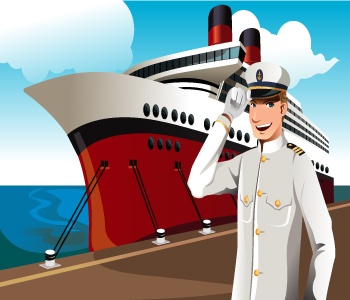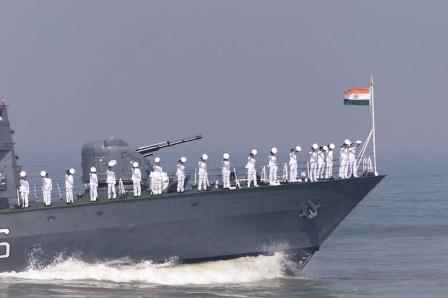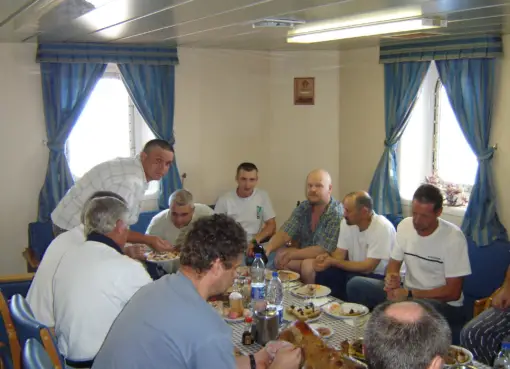- The Chief Officer is the Master’s deputy or second-in-command and shall understudy the Master in all aspects of his responsibilities. In case of death or incapacity of the Master, he shall take over command of the vessel, till such time, as he is suitably relieved.
- He shall be responsible to the Master for all aspects of ship operation, which are described here and shall keep him fully informed about all matters pertaining to safety, security, cargo, stress and stability, stevedores, defects and non-conformities.
- At Sea, the Chief Officer shall usually keep the 0400-0800/1600-2000 navigational watches. The watches may be adjusted by the Master to ensure that the officers are suitably rested, and to take account of differing manning arrangements.
Cargo and Ballast
- Chief Officer is the designated cargo officer and responsible for safe planning, loading, storage, care and discharge of cargo. He shall supervise and direct the cargo operations ensuring that the stresses and stability of the vessel are always within limits. He shall keep Master fully informed with all aspects of cargo care.
- He shall be responsible for ensuring and maintaining:
- Cargo worthiness of cargo containment prior loading.
- Cargo is loaded, stowed and secured as per plan.
- Cargo is cared for during passage with respect to monitoring its parameters, ventilation, cooling, heating etc., as required.
- Cargo is discharged safely as per plan. Issuing relevant standing/night orders.
- Records for cargo and ballast operations are maintained as per company procedures.
- Records of cargo parameters, soundings of ballast tank and other spaces are maintained as per company procedures.
- Prior loading of any hazardous cargo, same is discussed with Master.
- Chief Officer is the appointed Ballast Water Management officer onboard and responsible for ensuring:
- Ballasting and de-ballasting operations are conducted as planned.
- Proper ballast distribution at all times to achieve adequate draft and trim, keeping stresses and stability within limits.
- Records of all ballast operations are maintained as per the Ballast Water Management Plan.
Safety and Security
• Chief officer shall be responsible for:
• Carrying out the duties of a Safety Officer, if designated by the Master.
• Securing decks for proceeding to sea, allowing for the possibility of heavy weather.
• Ensuring that the hatches, side-doors and all openings, which could permit the ingress of water into the hull, are effectively closed
• Preparations on deck for arrival into a port or congested waters
• Carrying out the duties of Ship Security Officer (SSO) as per the Ship Security.
• Ensuring searches carried out to detect stowaways and drugs and for coordinating this search with other department heads.
Environment Protection
• The Chief Officer shall be responsible for:
• Maintenance of oil spills response equipment and act as oil spill coordinator on oil tankers.
• Maintaining the oil record book, on oil tankers.
• Garbage Management as per Garbage Management Plan.
• Chief Officer shall assist the Master and the Chief Engineer in pursuing the objectives and targets assigned for the ship on environmental aspects, on ships certified to ISO 14001 standards.
Maintenance
• Chief Officer shall be responsible for:
• Maintenance of LSA/FFA and safety equipment on deck and guiding the third officer in planning and carrying out the maintenance.
• Maintenance of the hull, decks, accommodation, tanks, void spaces, valves, and piping system.
• Identification and maintenance of all critical equipment on deck.
• Maintenance of aerials and riggings for electronic equipment on the bridge.
• a condition, operation, maintenance and availability of all deck equipment including gangways, mooring machinery, cranes, derricks etc.
• A condition, operation, maintenance and availability of all cargo equipment including hatch covers, lifting gear, cargo pipelines, cargo valves, deck seals etc.
• Maintenance and repair works performed on deck and catering department.
• Ensuring compliance with the deck planned maintenance program and records.
• Upkeep and maintenance of all deck stores
• He shall closely liaise with the Chief Engineer for repairs of any mechanical, hydraulic or electrical equipment or steel repairs and assist with manpower where necessary.
Personnel Management
• Chief Officer is the head of the deck department.
• He shall be responsible for:
• Ensuring compliance with safety and environment protection procedures by deck and shore personnel.
• Ensuring that a proper cargo/port watch is maintained by the duty officer under his supervision.
• The allocation of daily work of the deck crew and catering department.
• Assignment of jobs beyond scheduled working hours.
• Preparing appraisal reports for deck and catering crew.
• Advising Master on the performance of deck officers including appraisal reports.
• Training and Drills
• Chief Officer shall be responsible for:
• Training of Deck Cadets, trainee seamen, and trainees in the catering department.
• Planning and execution of safety training and emergency drill schedules.
• Safety familiarization of new joiners including supernumeraries.
• Job familiarization of deck and catering staff.
• Cargo familiarization of junior deck officers.
• Encouraging and guiding junior officers to learn and use the PMS relevant to their responsibilities.
Administration and Record Keeping
• The Chief Officer shall be responsible for:
• The proper upkeep of the deck logbook and all reports concerning cargo, deck maintenance, and deck related Company reports.
• Inventory and consumption records of deck stores, spares, and paints.
• Prepare requisitions for deck stores, spares, and paints and scrutinize requisitions from other deck officer’s prior submission to the Master.
• Receiving and signing for deck stores, spares, and paints and to ensure that the quality and quantity of items delivered conform to the order.



